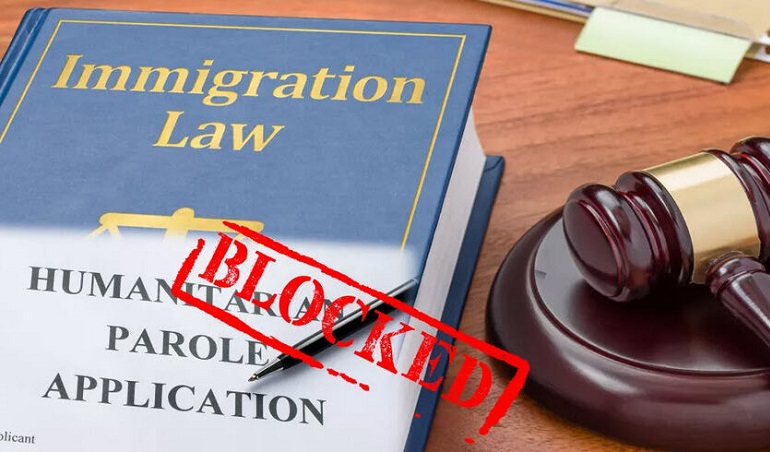The Suspension of Parole in Place: A Blow to the Hope for Legality in the U.S.
By Héctor Benítez Cañas
The recent suspension of the Parole in Place (PIP) program has generated a wave of uncertainty among immigrants who saw this option as a hope for regularizing their status in the United States. This program, which allowed certain spouses and stepchildren of U.S. citizens to obtain temporary stay, was a relief for many families facing the threat of deportation. However, with the suspension, there is growing concern about the legal and personal implications for those who were already in the process or had considered this path as their best option.
Direct Impact on Families
Parole in Place not only offered a temporary solution, but also opened the door to other immigration benefits, such as the possibility of adjusting status. With the suspension of approvals, many families now find themselves once again in a vulnerable state, facing the possibility of separation and uncertainty about their future in the United States.
Legal and Immigration Consequences
For those who had already begun the process under PIP, the suspension represents a significant obstacle. Without the possibility of obtaining Parole, these individuals may face deportation orders or greater difficulties in regularizing their immigration status. Additionally, those already in deportation proceedings who saw PIP as an opportunity to resolve their situation now find themselves in an even more precarious position.
Make Use of the Time: Apply Now
It is important to clarify that while the approvals for Parole in Place are suspended, the application process remains open. This means that immigrants can still submit their applications to be prepared when approvals resume. Taking advantage of this time to complete and submit the application could be crucial to staying a step ahead in the process.
The suspension of Parole in Place underscores the volatility of the U.S. immigration system and the importance of having clear legal options for those seeking to regularize their status. It is vital that affected immigrants seek legal advice to explore available alternatives and protect their rights in an increasingly restrictive environment.






